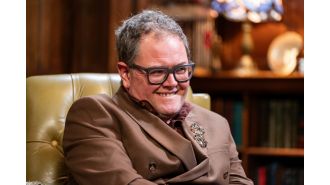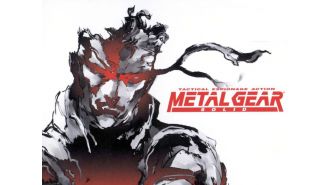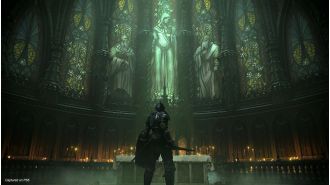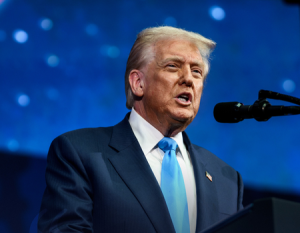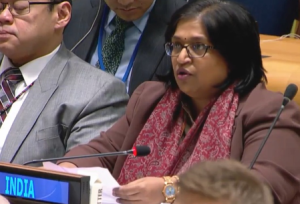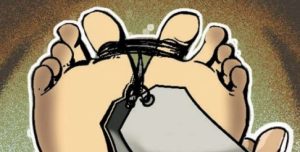Former President Jimmy Carter stood out among his fellow presidents in the exclusive group known as the Presidents' Club.
Jimmy Carter, who died Sunday, was often an outsider after losing reelection in 1980, due to his outspokenness and distance from both Republicans and Democrats.

In April 2021, President Joe Biden paid a visit to former President Jimmy Carter's home in Plains, Georgia. The significance of this visit went beyond a simple show of respect between two commanders in chief. It marked the first time in 40 years that any of Carter's seven successors had returned to his hometown since he left the White House.
Throughout the years, Carter had a complicated relationship with his fellow members of the exclusive club of presidents. In fact, it was often more cold than warm. After his defeat in the 1980 election, Carter found himself on the outskirts of the political scene. He was distant from both the Republicans and Democrats who followed him, and his outspokenness often rubbed them the wrong way.
Unlike many of his fellow presidents, Carter did not join the lucrative speaking circuit or participate in joint humanitarian missions. He preferred to do his own thing, even if it went against official foreign policy. What some saw as principled, others viewed as sanctimonious. And while other former presidents typically refrained from publicly commenting on the current administration, Carter was not one to hold his tongue.
In 2010, he boldly stated, "I feel that my role as a former president is probably superior to that of other presidents." Carter was not afraid to speak his mind, often parachuting into trouble spots as an election observer, negotiating with countries like North Korea, and discussing Middle East politics. His actions sometimes caused consternation among those in the White House, but Carter remained steadfast in his beliefs.
Despite knowing that he often irritated his successors, Carter showed little concern for ruffling their feathers. As Jack Watson, his former White House chief of staff, stated, "Carter has spoken with a frankness that has not always endeared him to others. But he calls it as he sees it."
This pattern of behavior began as soon as Carter left office in 1981. His relationship with his successor, Ronald Reagan, was strained, to say the least. Carter saw Reagan as dim and dangerous, and the feeling was mutual. Reagan never invited Carter back to the White House during his eight years as president.
Carter even experienced tension with members of his own party. Despite being a moderate Democrat from the South, he did not see eye to eye with President Bill Clinton. Their relationship got off to a rocky start when Carter, as president, sent 19,000 Cuban migrants to Arkansas in 1980, against the objections of then-governor Clinton. This decision led to a riot and ultimately hurt Clinton's chances for re-election that year.
Even after Clinton became president, their relationship remained strained. Carter openly criticized Clinton for sending his daughter, Chelsea, to a private school instead of a public school like he did with his own daughter, Amy. Their disagreement led to a snub from Clinton at the 1993 inaugural festivities.
Despite his sometimes prickly relationships with his fellow presidents, Carter did manage to forge closer ties with President George H.W. Bush. Together, they worked with Secretary of State James Baker to bring an end to the long-running Contra war in Nicaragua. Carter even stated in a 2015 interview that he had a better relationship as a former president with Bush and Baker than any other president.
However, there were still moments of tension. When Bush and Baker sought United Nations authorization to use force against Iraq in 1990, Carter privately lobbied against it with Security Council members. This decision was seen by some in the Bush administration, like Defense Secretary Dick Cheney, as almost treasonous.
Despite the challenges and conflicts, Carter remained true to himself and his beliefs. He was not one to conform to political expectations or play by the rules of the "exclusive club of presidents." Instead, he followed his own moral compass, often standing apart from his peers both physically and metaphorically. But through it all, Carter remained a respected and influential figure in American politics, even after his presidency ended.
When President Joe Biden paid a visit to former President Jimmy Carter's home in Plains, Georgia in April 2021, it was more than a simple display of respect between two former leaders. It marked the first time in 40 years that any of Carter's seven successors had visited him in his hometown since he left the White House. Throughout his life, Carter had a complicated relationship with the other members of the exclusive club of presidents, leaning more towards the "cold" side rather than "hot." From the time of his election defeat in 1980 until his passing in 2021, he remained the odd man out, often at odds with the Republicans and Democrats who followed him and constantly making waves with his outspokenness.
Unlike his fellow presidents, Carter chose not to join the lucrative speaking circuit or team up for many joint humanitarian missions. He was rarely consulted by the current presidents, unless he forcefully inserted himself into an issue and made it impossible to ignore him. At the gathering to welcome Barack Obama to the White House in 2009, Carter stood slightly off to the side, physically and metaphorically removed from his more amicable peers. He was a thorn in the side of many of his successors, always going against the grain and pursuing his own agenda, even if it didn't align with official foreign policy. What he saw as standing by his principles, others saw as sanctimonious. While most former presidents exercised discretion and refrained from speaking out against the current administration, Carter was not one to hold his tongue.
In fact, he often saw his role as a former president as more significant than that of his fellow presidents. As he stated in 2010, "I feel that my role as a former president is probably superior to that of other presidents." He was not one to conform to the norms of the presidency and often caused friction with his peers. He would frequently parachute into volatile areas as an election observer, make trips to North Korea as a freelance negotiator, and openly voice his opinions on Middle East politics. This often put him at odds with whoever happened to be in the White House at the time, and he was not afraid to meet with ostracized leaders such as Syria's Hafez Assad and Nicaragua's Daniel Ortega. In 2002, when Carter was awarded the Nobel Peace Prize, it was seen as a rebuke towards President George W. Bush for his plans to invade Iraq.
According to Douglas Brinkley, author of "The Unfinished Presidency: Jimmy Carter's Journey Beyond the White House," Carter was not one to conform to the expectations of the presidency, saying "Jimmy Carter's not real keen on clubs." He looked up to figures like Anwar Sadat and Mahatma Gandhi, rather than his fellow presidents. Despite knowing that he often rubbed his peers the wrong way, Carter showed little concern for their opinions. As Jack Watson, Carter's White House chief of staff, stated, "As he has aged, he was not constrained by political considerations...Carter has spoken with a frankness that has not always endeared him to others. But he calls it as he sees it."
This pattern of not conforming to the norms of the presidency was established as soon as he left office in 1981 after being defeated by Ronald Reagan. The relationship between the two was strained, with Carter later admitting that he considered Reagan to be dim and dangerous. Reagan reciprocated these feelings and never invited Carter to the White House during his eight years in office. In 1983, when Carter's official portrait was ready to be hung in the White House, he requested that there be no ceremony to avoid standing next to the man he did not respect. During the Reagan administration, Carter learned that US ambassadors had been instructed not to provide him with assistance or even acknowledge his presence when he traveled.
Carter did have a closer relationship with President George H.W. Bush, and the two worked together with Secretary of State James Baker to end the Contra war in Nicaragua. In a 2015 interview, Carter stated that he had a better relationship with Bush and Baker than any other president. However, there were still tensions between them. When Bush and Baker sought United Nations authorization to use force against Iraq's invasion of Kuwait in 1990, Carter privately lobbied members of the Security Council to vote against the United States. Some of Bush's top officials, including Dick Cheney, considered this to be almost treason.
Even within his own party, Carter faced difficulties. He had a strained relationship with Bill Clinton, despite both being moderate Democrats from the South. They started off on the wrong foot when Carter, as president, sent 19,000 Cuban migrants to Fort Chaffee in Arkansas in 1980, against the objections of Clinton, who was the state's governor at the time. This decision politically damaged Clinton, who lost the election that November alongside Carter. Clinton blamed his defeat on his fellow Democrat. When Clinton became president, their relationship did not improve. Carter irked Clinton by criticizing his decision to send his daughter, Chelsea, to a private school in Washington instead of a public school like Carter had done with his own daughter, Amy. Clinton was so displeased that he snubbed Carter at the 1993 inaugural festivities.


